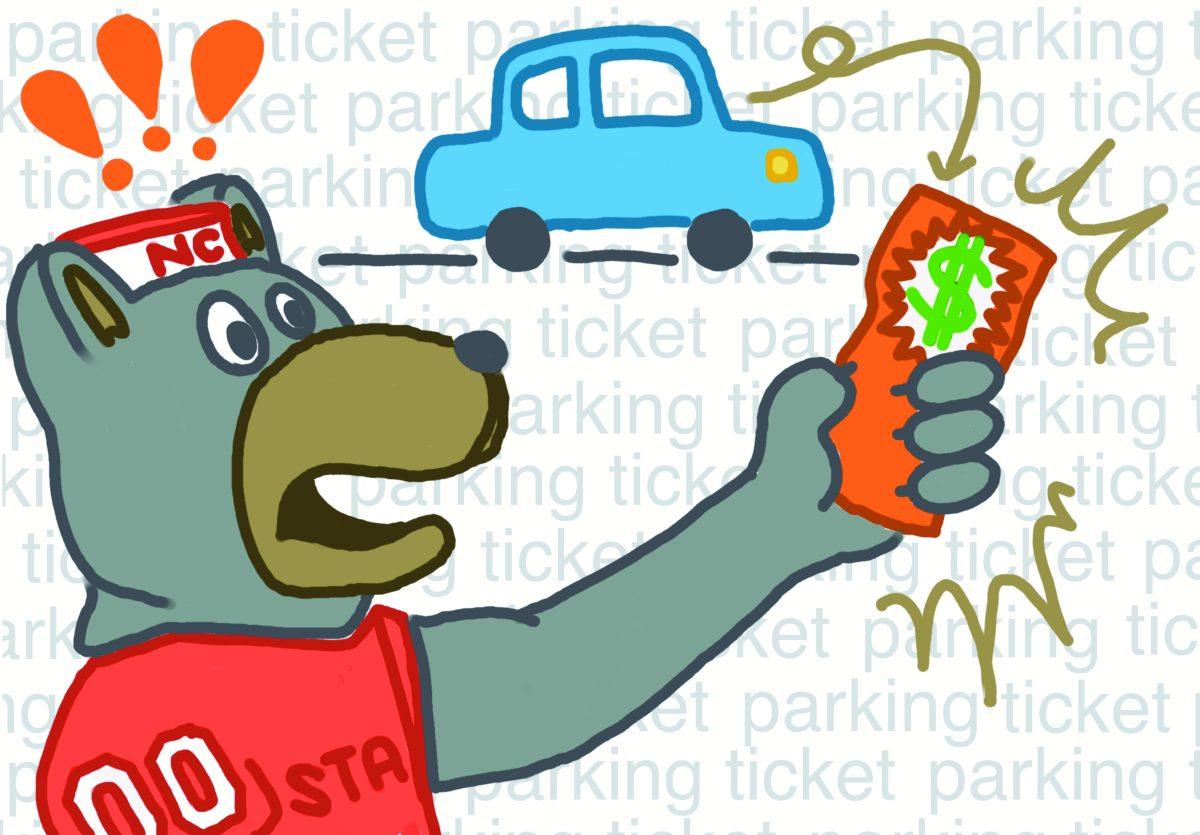NC State Transportation increased parking enforcement fines for the first time in twenty years. Most fines rose by 50%. One fine, charged for unauthorized parking in any reserved space, lot or area, leaped from $50 to $125.
Chris Dobek, assistant director for Parking Services and Operations, said Transportation increased fines to encourage compliance. Dobek said the goal is to make sure that people who have paid for a parking permit have a place to park.
“Our parking is a limited resource,” Dobek said. “We have 20,000 parking spaces on campus, and the demand has far exceeded the capacity we have on campus.”
To determine the new fines, Transportation compared NC State’s parking citation fines to those at 14 other universities, including UNC-Chapel Hill, East Carolina University and the University of South Carolina.
“We spent months evaluating the number of citations that were issued, the types of citations that were issued, the cost associated with those citations and then we prepared a review for our ordinances,” Dobek said. “Ultimately, it’s approved by the Board of Trustees.”
NC State’s previous fines were largely below the average fines at peer universities, according to data collected by Transportation in its research. The new fines bring NC State up to or above the average in most violation categories.
Though higher fines may generate some additional revenue, Transportation only keeps 20% of the money it collects from citations. Dobek said the fine hike wasn’t implemented to pad Transportation’s budget.
“Our goal is not to generate additional revenue for our department,” Dobek said. “Our goal is to gain compliance. At the end of the day, that’s what we want.”
Transportation’s Parking Services and Facility Operations office is primarily funded through parking permit sales, and this money goes toward maintaining current parking facilities and building new ones, Dobek said.
“We just constructed a brand new parking lot for resident storage students,” Dobek said. “It’s 453 parking spaces, and it cost us $5 million to construct that. So we don’t have the financial wherewithal just to build additional parking because it is extremely expensive to build and ultimately maintain, which we do.”
Shambhvi Chaturvedi, a fourth-year studying business administration, international studies and Spanish, said she thinks raising parking enforcement fines may force some students to take alternative modes of transportation, which can be more time-consuming than driving to campus.
“For people who have to balance jobs and school, I feel like that makes it very difficult, especially because we don’t live in a walkable city,” Chaturvedi said. “I think the price increase more than anything is going to be a matter of equity because it’s going to impact people who are busy and who need to work to survive.”
Dobek said there are no exceptions for students who may not have the financial means to afford to pay for a higher parking ticket.
“That individual is making the choice to park illegally or park out of the zone or choosing not to pay to park,” Dobek said. “We have ample pay-by-plate parking; we have ample processes in place. Our system isn’t complicated. We just want compliance with parking. And not everybody wants to be compliant.”
Chaturvedi said she’s received so many parking tickets, she now opts to take a shuttle to and from campus. She said she thinks Transportation’s parking citations can be excessive.
“I think it’s just unnecessary, especially considering the tuition everyone pays to go here,” Chaturvedi said.
Dobek said parking citations are necessary to ensure people who pay for a parking permit have a spot to park.
“When people start to park illegally, that impacts how our permanent parkers are able to park on campus,” Dobek said. “We don’t hate students. We don’t hate cars. All we’re asking for is compliance in the parking world.”













